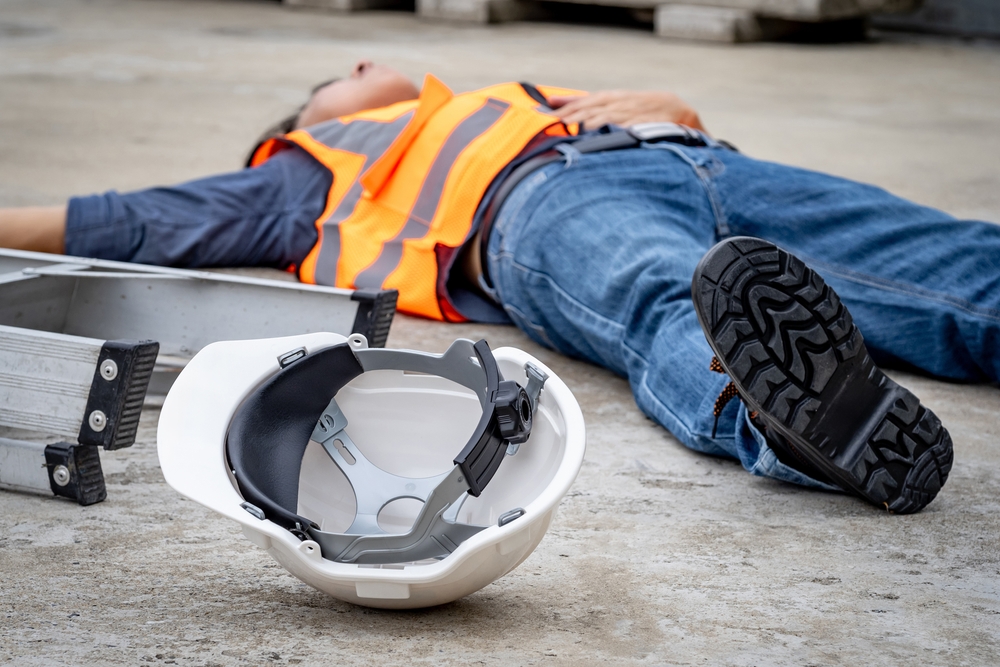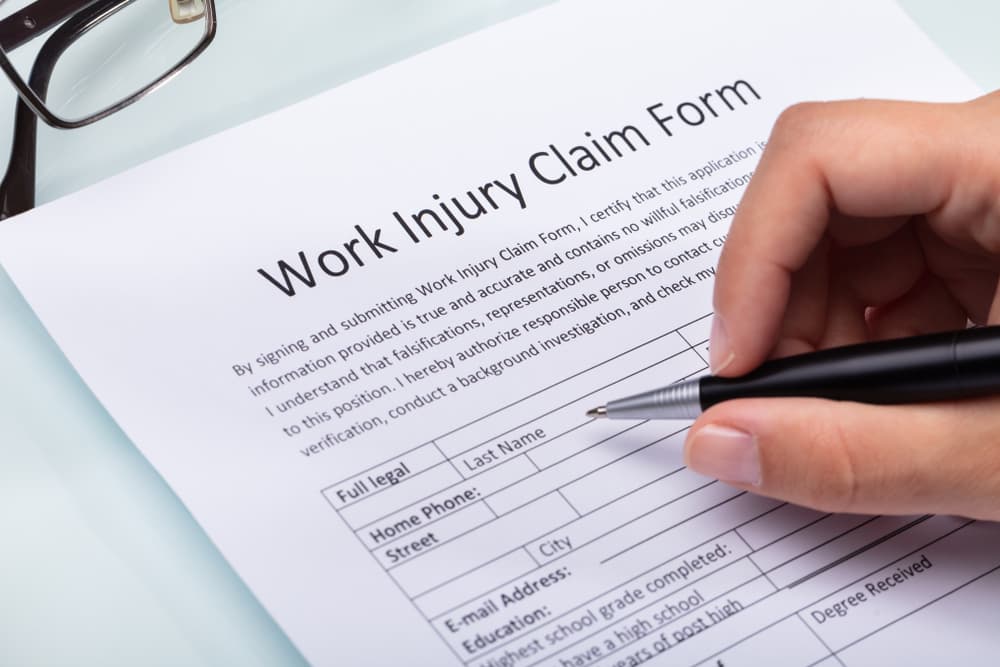If you've suffered an injury on the job, you may wonder what kind of support you can get. Workers' compensation is a type of insurance employers must provide benefits to employees who get injured or sick because of their work.
Below are some of the various workers' compensation benefits available to you, depending on the nature of your condition. Whether you're dealing with temporary disability, permanent impairment, or medical expenses, understanding your options is important. Never hesitate to discuss your potential benefits with an experienced Columbia workers compensation attorney.
Medical Benefits

One of the most important workers' compensation benefits is medical care.
If you get hurt at work, your employer's insurance should pay for all the medical treatment needed to improve. This includes things like:
- Doctor visits
- Hospital stays
- Surgery
- Medications
- Medical equipment (like crutches or a wheelchair)
- Physical therapy
- Other types of therapy (like occupational therapy or speech therapy)
You don't have to pay anything for this medical care. Your employer's insurance covers all the costs. You can also choose your doctor if they accept workers' compensation insurance.
It's important to tell your doctor that your injury or illness is work-related. That way, they can bill your employer's insurance correctly. Keep all your medical records and receipts in case there are any questions later.
Disability Benefits
If your work-related injury or illness prevents you from performing your job, you can also receive disability benefits. These benefits provide financial assistance to help offset the income loss from your inability to work due to your work-related condition. There are different kinds of disability benefits:
Temporary Total Disability (TTD) Benefits
When you suffer a work-related injury that completely prevents you from doing your job for a short period, you may be eligible for Temporary Total Disability (TTD) benefits. These benefits aim to support you financially while you recover from your injury and cannot work.
TTD benefits typically amount to two-thirds of your regular income, although this may vary slightly depending on your state's laws. For example, if you usually earn $900 weekly, your TTD benefits will be around $600 weekly. This helps ensure you can still cover basic living expenses while off work.
You can continue receiving TTD benefits until you can return to work or your doctor determines that you have reached "maximum medical improvement" (MMI). MMI means that your condition has improved as much as it's likely to with medical treatment. If you still have some disability, your doctor will assess whether it's permanent and if you're eligible for other types of disability benefits.
TTD benefits temporarily support you until you can return to work or until your condition has stabilized. Your employer or insurance company may require regular updates from your doctor to verify that you still qualify for these benefits.
Temporary Partial Disability (TPD) Benefits
You can sometimes return to work after a work-related injury, but not at full capacity. Perhaps your injury prevents you from doing certain tasks, or you must work fewer hours. In these situations, you might be eligible for Temporary Partial Disability (TPD) benefits.
TPD benefits aim to compensate for the income difference when you can't earn as much as you did before your injury. For instance, you used to earn $800 per week, but you can now only earn $500 per week due to work restrictions. TPD benefits will help bridge that gap in your income.
The amount of TPD benefits you receive will depend on your state's laws and the specifics of your situation. Generally, it will be a percentage of the difference between your pre-injury and post-injury income. These benefits are temporary, and you'll continue to receive them until you can return to your pre-injury job and income level or until you reach maximum medical improvement.
TPD benefits encourage you to return to work in whatever capacity you can. Your employer might offer you modified duties or a part-time schedule to accommodate your limitations. These opportunities can aid in your recovery and transition back to full duty.
Permanent Partial Disability (PPD) Benefits
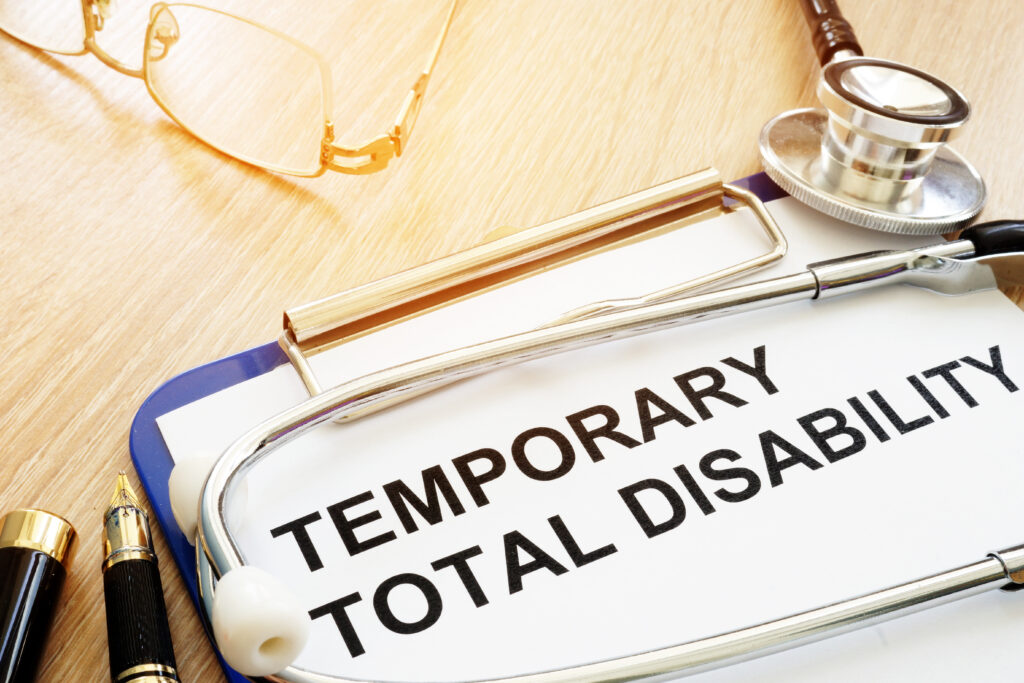
Unfortunately, some work-related injuries result in permanent impairments, even after you've reached maximum medical improvement. If you have a permanent disability that partially limits your ability to work, you may be eligible for Permanent Partial Disability (PPD) benefits.
The amount of PPD benefits you receive depends on the severity of your disability and what part of your body is affected. Each state has its guidelines for determining PPD benefits, often based on a percentage of impairment to the affected body part.
For example, let's say you injure your hand in a work accident, and even after surgery and physical therapy, you have lost some grip strength and agility. Your doctor might assess that you have a 25 percent permanent impairment to your hand. Your state's laws will determine how that translates into a monetary award.
PPD benefits typically pay out in lump sum or weekly installments over a set period. Unlike TTD or TPD benefits, they do not rely on your income. Instead, they aim to compensate you for the permanent loss of function and the potential impact on your future earning capacity.
Receiving PPD benefits doesn't necessarily mean you can't work at all. Many people with permanent partial disabilities can still work, either in their previous job with accommodations or in a new position that suits their abilities.
Permanent Total Disability (PTD) Benefits
In the most severe cases, a work-related injury can leave you with a permanent disability that completely prevents you from working in any capacity. If this happens, you may be eligible for Permanent Total Disability (PTD) benefits.
PTD benefits are usually a weekly payment you receive for the rest of your life. The amount typically derives from a percentage of your pre-injury income, akin to TTD benefits. For instance, if your state's PTD benefit is 70 percent of your average weekly income, and you used to earn $1000 per week, you will receive $700 per week in PTD benefits.
To qualify for PTD benefits, your disability must be severe enough to prevent you from gaining substantial employment. This means not just your previous job but any job. Usually, this involves a catastrophic injury like a severe brain injury, spinal cord injury causing paralysis, or the loss of both hands, both feet or eyesight.
Receiving PTD benefits can provide long-term financial security for you and your family if you cannot work due to a work-related injury. However, the qualifications are strict, and these cases can be difficult. It's often beneficial to work with an experienced workers' compensation attorney who can support you with the process and ensure you receive the benefits you deserve.
Each state has its workers' compensation laws, and the specifics of your benefits may vary. If you've suffered a work-related injury, it's best to consult with a workers' compensation professional who can guide you through the process and help protect your rights.
Vocational Rehabilitation Benefits
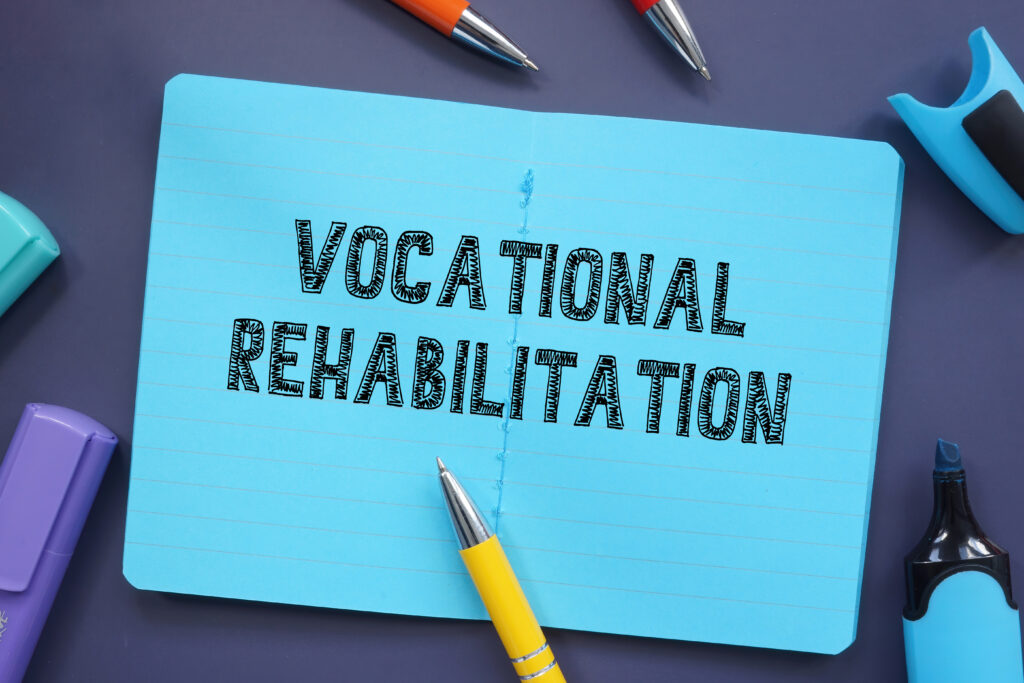
Sometimes, a work injury means you can't go back to the same job you had before. If that happens, workers' compensation may pay for vocational rehabilitation benefits. These benefits allow you to learn new skills to do a different job. They might pay for things like:
- Job counseling to support you while you figure out what kind of work you can do now
- Training or education so you can learn new job skills
- Help with finding a new job that fits your abilities
Vocational rehabilitation aims to support you as you get back to work in a job you can do.
Death Benefits
Sadly, some work injuries are so severe that they lead to the employee's death. When this happens, the worker's family may receive death benefits through workers' compensation. These benefits usually include money to help pay for funeral costs and lost income. The exact amount and who can receive these benefits varies depending on the state.
Additional Benefits
Other workers' compensation benefits may be available depending on where you live. For instance, some states offer benefits for things like:
- Travel costs for medical appointments
- Scar or disfigurement compensation
- Mental health treatment for conditions like depression or anxiety related to your work injury
To determine what benefits you qualify for and to navigate the complexities of the workers' compensation system effectively, it's best to speak with a knowledgeable workers' compensation lawyer in your area. They can assess your situation, explain your rights, and guide you through the process to ensure you receive the maximum benefits you are entitled to under the law.
What to Do if Your Claim is Denied
Receiving a denial for your workers' compensation claim can be disheartening, especially when you're already dealing with the stress of a work-related injury or illness. However, a denial isn't the end of the road. You can appeal the decision and fight for the benefits you deserve.
Your claim might get denied for several reasons. The insurance company may argue that your injury or illness isn't work-related or results from a pre-existing condition. They might say that you didn't report your injury quickly enough or didn't provide sufficient medical evidence to support your claim.
Regardless of the reason for the denial, you should receive a written notice explaining the decision. Read this notice carefully. It will outline the specific reasons for the denial and the steps you need to take to appeal.
The appeals process varies from state to state, but it generally involves filing a formal appeal with your state's workers' compensation board. Filing appeals requires strict deadlines, so it's best to act quickly. In some states, you may need to file your appeal within 30 days of receiving the denial notice.
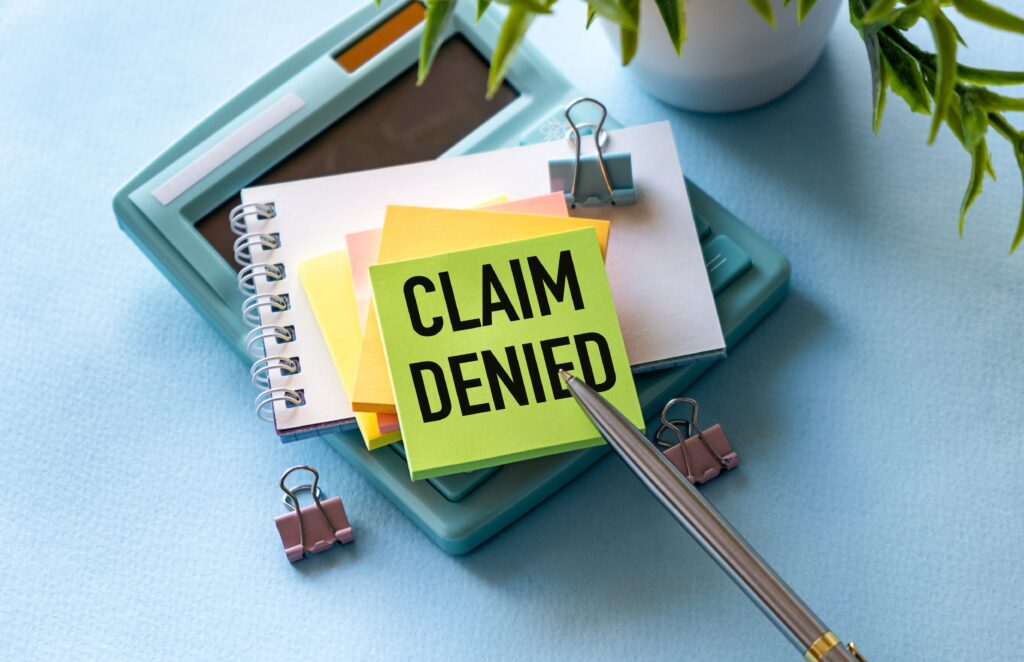
The appeals process can be time-consuming and overwhelming, especially when dealing with a medical condition. This is where a workers' compensation lawyer can be valuable.
When you work with a skilled lawyer, they'll start by reviewing your case thoroughly. They'll look at the circumstances of your injury, your medical records, and the reason for the denial. They may spot issues or opportunities that you hadn't considered.
Your lawyer can gather the necessary documentation if your claim lacks sufficient medical evidence. They may arrange for you to see specific medical specialists who can provide professional opinions on your condition and its relation to your work.
If the insurance company is disputing the work-related nature of your injury, your lawyer can investigate to gather evidence to support your claim. This might involve interviewing witnesses, reviewing safety records, or consulting industry professionals.
Throughout the appeals process, your lawyer will be your advocate and guide. They'll handle the legal paperwork, meet the necessary deadlines, and represent you in any hearings or proceedings. They can also negotiate with the insurance company on your behalf, working to reach a fair settlement.
Many workers' compensation lawyers work on a contingency basis, which means they only get paid if they win your case. This allows you to access quality legal representation without upfront costs, which can be a significant relief when facing medical bills and lost income.
It's important to remember that a denial isn't a reflection of the validity of your claim. Insurance companies often initially issue denials, hoping the worker will simply give up. By appealing with the help of a skilled workers' compensation lawyer, you're showing that you're serious about fighting for your rights.
Even if your initial appeal is unsuccessful, you may have further opportunities to appeal to higher levels of review. Your lawyer can advise you on your options and continue to fight for you at each stage.
Getting Help from a Workers' Compensation Lawyer

Dealing with a work injury is stressful enough without also trying to go through the workers' compensation system on your own. A workers' compensation lawyer can guide you through the process, answer your questions, and advocate for your rights.
If you've suffered an injury at work, don't hesitate to reach out to a workers' compensation lawyer. A lawyer can evaluate your case for free and tell you what benefits you can receive. Remember, you have rights as an injured worker, and a skilled workers’ comp attorney can protect them with you.


